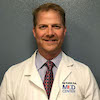PA School is an experience unlike any other. In honor of National PA Week, we reached out to PAs and asked them to share their best pieces of advice for those currently in PA school.
Here are our top answers from PAs who have been in your shoes:
Utilize your classmates
“Every new student of medicine - no matter how green - has unique talents and gifts. Each member of my class at UC Davis was an expert in some corner of medicine that I knew nothing about, and they were always glad to teach me if I asked. It took me a little longer to see that I was an expert in some things that others in my class didn't know much about, and that I could help them in turn.” - Paul Kubin
Try and maintain a good school/life balance
“While PA school can sometimes be overwhelming with midterms, exams, and having the constant anxiety of always studying, at the end of the day you are still a human being. You need "you time" to clear your mind, feed your brain and stay healthy mentally and physically. PA school will be always be a challenge, how you go about that challenge will make it more bearable. “ - John Dao
Be assertive
“Don't be afraid to be honest about what you want to do. Tell your professors and preceptors if there is an area you see yourself working in, and pursue it wholeheartedly. This goes for contract negotiations too. You'll never know what could happen if you don't ask.” - Savanna Perry
Remember the importance of networking
“Network with others in the profession sooner rather than later, and don’t be afraid to tell them what you are looking for. In a huge field like healthcare, much of your direction is shaped through personal connections with people you know - not like an "old boy" network, but like an "I know just the person you should speak with about that" network.” - Paul Kubin
Focus more on being a “practitioner” instead of just a “student in training”
“PA school can be viewed by many as an accelerated version of medical school with rotations ranging anywhere from 4-6 weeks. Quite frankly, this isn't enough time to master your skill set. So when you make that transition from didactics to clinicals, mentally prepare yourself to fully engage in that "practitioner" mindset no matter how difficult that speciality may be, because you will not have this opportunity to when you’re done with school.” - John Dao
Spend some time to reflect and appreciate
“Stop every now and then and take stock of where you are. School only lasts for two or three years, so savor this time when your biggest responsibility is to your own learning. Soon your biggest responsibility will be to your patients, which is wonderful too, but in a much different way.” - Paul Kubin
Keep these helpful hints in mind as you navigate your way through the challenging and rewarding experience of PA school.
Share your own advice and thoughts below!



